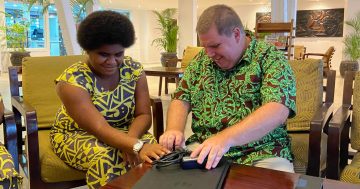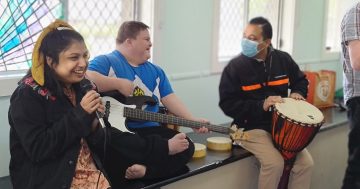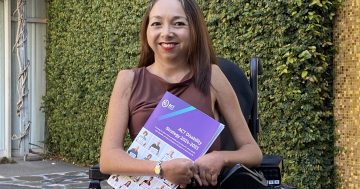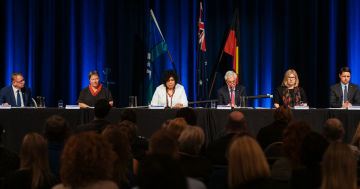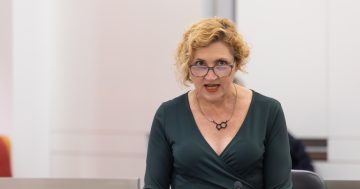
In the ACT, almost one in six of us have a disability, but when talk turns to inclusive leadership we rarely hear about the need to ensure that people with disabilities are represented in leadership roles.
It doesn’t mean that there aren’t amazing people with disabilities leading across our community, there are – in workplaces, in boardrooms, in volunteer organisations and in other community settings. When we look at the statistics, however, we realise that there are very few people in leadership roles that bring this experience and perspective to the table.
A stark example is the Australian Parliament. If we had a Parliament that was representative, we would expect to have 30 members in the House of Representatives and 15 senators who had a disability. Instead, we have a Parliament in which no members disclose they have a disability.
This is part of a broader picture and we have a pretty poor record at being inclusive of people with disability across all areas of life. The employment rate for people with disabilities in the ACT Government, for example, is very low – at a 2.2%. It is surprising to learn that this is higher than other parts of the country and demonstrates how far we need to go to make our community inclusive and accessible to everyone in the community.
Many people with disabilities struggle to be recognised for skills they have, the expertise they have developed or the value their lived experience brings to decision-making. Contrary to the belief that there just aren’t that many people with disabilities who have the qualifications or expertise to serve in leadership roles, it is actually the case that the odds are weighed against the many talented people who happen to have a disability to ever get identified, recognised or given the opportunity to be appointed to these roles.
Why does this matter?
Firstly, the challenges we face as a community are complex and it is counter-productive to exclude people with talent and ideas. It is a crazy idea to discount the contribution of 20% of the potential workforce or community. In doing this, we are missing out on many people who can help us solve the problems we face, now and in the future.
Secondly, diversity and inclusion on our leadership makes for more motivated teams. A team that sees a valuing and embracing of everyone’s talents, as well as the challenges they face, creates a sense of optimism and positivism.
Thirdly, inclusive leadership will give us a competitive edge – organisations and communities that involve a range of perspectives and different ways of thinking are much more likely to be innovative, performance-driven and able to adapt to a world where change is the norm. Diversity pushes organisations and communities to think differently, be solution-orientated and more creative.
There is a role for all of us in lifting our game regarding inclusive leadership. As a decision maker and employer, there is clearly a role for Government in leading by example. The ACT Government has done pretty well with gender targets in their board representation and this provides a strong blueprint on how to increase diversity in other areas. Hopefully, the current Legislative Assembly Inquiry into the employment of people with disabilities will provide concrete recommendations about how to increase the employment statistics – and focus on more than just entry level roles.
Leaders across the business and community sector also need to engage with this issue. We need to reflect on how our current ways of recruiting and engaging may inadvertently lock out a large section of the community and address our unconscious tendency to dismiss the leadership potential of people on the basis of physical ability or a particular condition. We need to educate ourselves and improve our performance at ensuring our leaders are diverse and reflective of the communities we serve. We should be linking in with locally based resources, such as the Disability Leadership Institute that has been established to change all this, with long-term disability advocate Christina Ryan heading the push to create a professional hub to support emerging leaders, create opportunities for peer mentoring and provide a conduit for organisations who wish to increase the diversity of their leaders.
I think we have to do much better to create opportunities to connect with people who have a diversity of experience and share leadership opportunities with them. We need to translate our good intentions to real action in this area. What do you think?
More information regarding the Disability Leadership Institute can be found at disabilityleaders.com.au. They provide a range of training and development opportunities and will be running a masterclass on 9 October 2017 for professionals who are working to increase their disability workforce.












